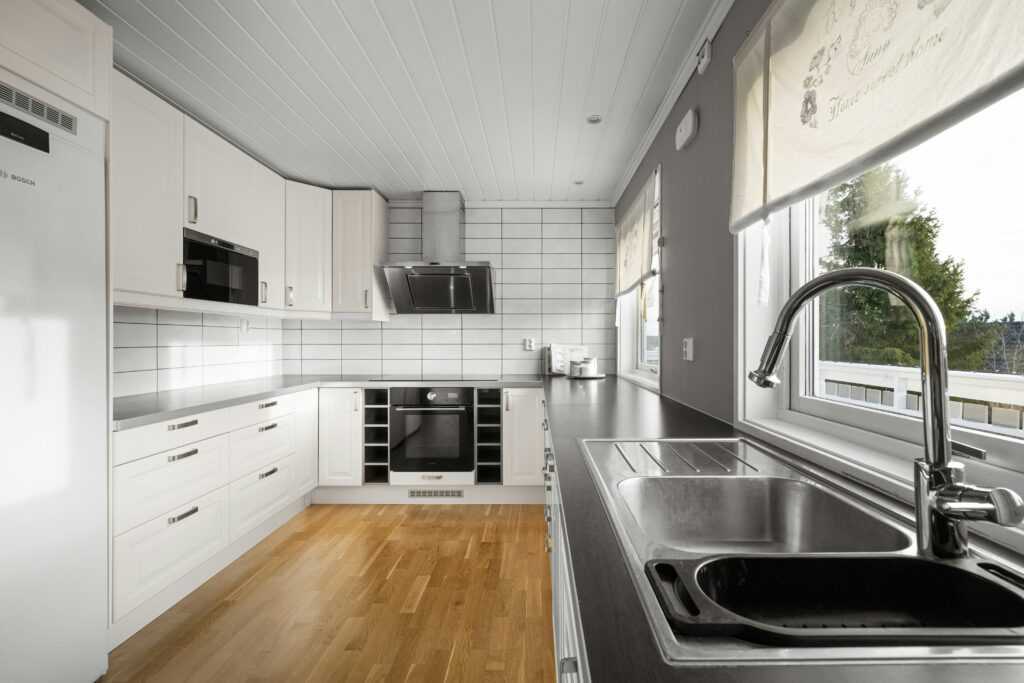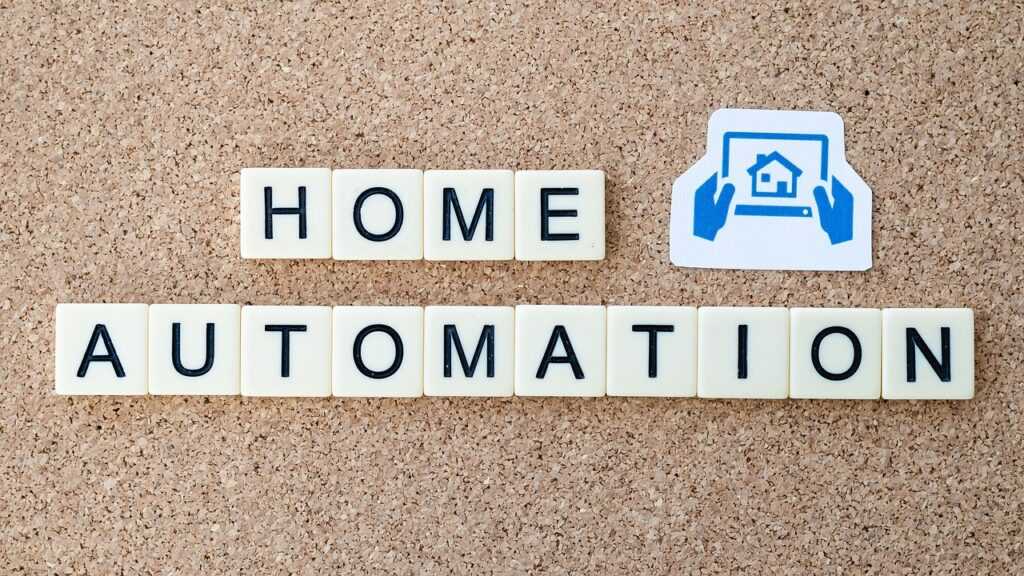As a tech enthusiast, I’m always on the lookout for the next big thing in smart home technology. From AI-powered assistants to interconnected devices, the future of smart homes is an exciting space to explore. In this article, we delve into the upcoming trends that are set to revolutionize the way we interact with our living spaces.
Imagine a home where your morning routine is seamlessly integrated with smart devices that anticipate your needs. From automated climate control to personalized lighting schemes, the possibilities are endless. The convergence of IoT, artificial intelligence, and sustainable practices is shaping the future of smart homes in ways we couldn’t have imagined before.
Join me on this journey as we uncover the latest innovations and trends that will define the future of smart home technology. Get ready to embrace a lifestyle where convenience, efficiency, and sustainability come together in perfect harmony.
Overview of Smart Home Technology
Exploring the landscape of smart home technology reveals a fascinating realm where innovation and convenience converge seamlessly. The integration of artificial intelligence (AI), internet of things (IoT), and sustainability principles is revolutionizing how we interact with our living spaces. Smart homes are no longer a futuristic concept but a tangible reality that shapes our daily routines for the better.
AI-powered assistants have become the cornerstone of smart home ecosystems, offering intuitive control over various devices and systems. From adjusting the thermostat to dimming the lights, these assistants like Amazon’s Alexa and Google Assistant have become essential companions in modern households.
The interconnected nature of smart devices enables seamless communication and coordination, allowing for a truly automated home environment. Imagine your coffee maker starting brewing as soon as your morning alarm goes off or your smart lock recognizing your arrival and unlocking the door without you reaching for the keys.
Moreover, the emphasis on sustainability in smart home technology is driving energy-efficient practices and eco-friendly solutions. Smart thermostats learn your behavior to optimize heating and cooling, reducing energy waste. Similarly, smart lighting systems adjust brightness based on natural light levels, minimizing electricity consumption.
The future trends in smart home technology are geared towards enhancing our lives through personalized experiences, efficient automation, and sustainable practices. The integration of AI, IoT, and sustainability principles heralds a new era of modern living where convenience, comfort, and environmental consciousness coexist harmoniously.
Current Trends in Smart Home Technology
Smart home technology is continuously evolving, driven by the integration of artificial intelligence (AI) and the expansion of Internet of Things (IoT) devices. These trends have revolutionized the way we interact with our living spaces, enhancing convenience, efficiency, and sustainability.
Integration of Artificial Intelligence
AI has become ubiquitous in modern smart homes, enabling seamless automation and personalized experiences. With AI-powered assistants like Amazon’s Alexa and Google Assistant, tasks such as controlling devices, setting reminders, and answering queries have become effortless. The ability of AI to learn user preferences and adapt to individual needs has redefined home automation.
Expansion of IoT Devices
The proliferation of IoT devices has connected every aspect of the home, creating a network of smart appliances and gadgets that communicate with each other. From smart thermostats that learn temperature preferences to security systems that send real-time alerts to smartphones, IoT devices have transformed homes into intelligent ecosystems. As the number of IoT devices grows, the interconnectivity and functionality of smart homes continue to expand, enhancing convenience and security for homeowners.
Emerging Technologies in Smart Home Systems
Virtual and Augmented Reality
Expanding on the immersive experience in smart homes, Virtual Reality (VR) and Augmented Reality (AR) applications are increasingly becoming integral to home automation. Virtual Reality can simulate environments, providing interactive experiences for entertainment, gaming, or virtual tours within the home environment. Augmented Reality overlays digital information onto the real world, offering interactive experiences for smart home control and maintenance.
Voice Control Integration
Integrating voice control technology such as Amazon Alexa, Google Assistant, or Apple Siri into smart home systems enhances convenience and accessibility. Voice commands allow users to control various devices, adjust settings, and receive information hands-free, simplifying daily tasks and interactions within the smart home ecosystem.
Biometric Security Systems
Biometric security systems like facial recognition or fingerprint scanning are revolutionizing home access control and security. These systems provide a high level of security by using unique biological traits for authentication, ensuring personalized and robust protection for smart homes. Biometric technologies offer a seamless and efficient way to access and secure smart home devices and data.
Energy Management Solutions
Smart home energy management solutions optimize energy consumption through advanced monitoring and automation. These systems analyze energy usage patterns, suggest improvements, and automate devices to operate efficiently, reducing energy waste and costs. Energy management solutions promote eco-friendly practices and sustainability by enhancing the overall energy efficiency of smart homes.
Ethical and Security Concerns in Smart Homes

Addressing ethical and security concerns in smart homes is crucial as technology advances. The integration of AI and IoT devices raises important considerations regarding privacy and data security.
When it comes to smart homes, data privacy is a significant concern. Smart devices collect vast amounts of personal data, from daily routines to user preferences. This data can be vulnerable to hacking or unauthorized access, posing risks to individuals’ privacy. The challenge lies in ensuring robust data encryption measures to safeguard sensitive information.
Another pressing issue is device security. With the increasing interconnectedness of IoT devices, each connected device becomes a potential entry point for cyber attacks. Ensuring regular software updates and strong authentication protocols are essential to prevent breaches and protect the integrity of smart home systems.
Moreover, ethical considerations arise concerning the use of AI in smart homes. As AI algorithms become more advanced, questions about data transparency and algorithm bias come to the forefront. It’s essential to address these issues to prevent discrimination or unethical use of AI technology within smart home environments.
Staying vigilant about data privacy, device security, and ethical AI usage is paramount in shaping a trustworthy and secure future for smart home technology. By addressing these concerns proactively, we can harness the benefits of technology while mitigating potential risks.
Future Trends in Smart Home Technology
Exploring the future trends in smart home technology is an exciting journey that unveils innovative advancements revolutionizing how we interact with our living spaces. As the digital landscape continues to evolve rapidly, several key trends are poised to shape the future of smart home technology:
- 5G Connectivity: With the rollout of 5G technology, smart homes will experience faster and more reliable connectivity, enabling seamless integration of devices and improved real-time data processing.
- Smart Retail Integration: Smart retail integration in smart homes will offer personalized shopping experiences, automated restocking of essentials, and seamless connectivity with online platforms for convenient shopping.
- Health Monitoring Systems: The integration of advanced health monitoring systems in smart homes will provide real-time health data, enabling proactive health management and early intervention in emergencies.
- Enhanced Energy Efficiency: Future smart homes will focus on enhanced energy efficiency through advanced sensors, AI-powered systems for optimizing energy consumption, and integration of renewable energy sources for sustainable living.
- Robotics and Automation: The integration of robotics and automation in smart homes will revolutionize household chores, security monitoring, and personalized assistance, enhancing overall convenience and comfort.
- Augmented Reality (AR) Enhancements: AR enhancements in smart home technology will offer immersive experiences for remote assistance, virtual home decor visualization, and interactive entertainment within the home environment.
- Blockchain Security Solutions: The adoption of blockchain technology for security in smart homes will ensure decentralized and tamper-proof data storage, enhancing data privacy and security against cyber threats.
- Emotional AI Integration: Emotional AI integration will enable smart home devices to recognize and respond to human emotions, offering personalized interactions and tailored experiences for users.
- Biometric Access Control: Biometric access control systems will become more prominent in smart homes, enhancing security through fingerprint recognition, facial recognition, and voice authentication for secure access to homes.
- Hybrid Workspaces: Future smart homes will feature hybrid workspaces that seamlessly integrate home office setups with smart technology, offering flexibility for remote work and productivity enhancements.
The future of smart home technology holds immense potential for transforming our living spaces into intelligent environments that cater to our evolving needs and preferences. Embracing these emerging trends will pave the way for a smarter, more connected, and secure future in the realm of home automation.



